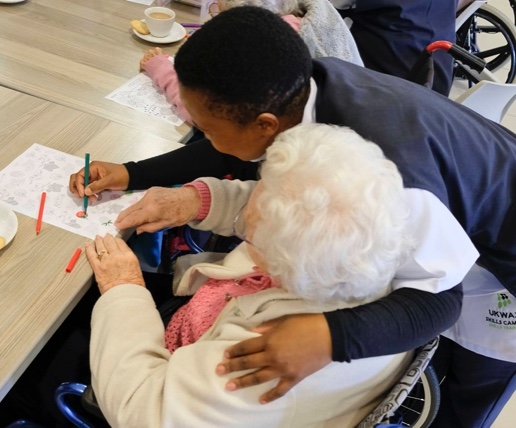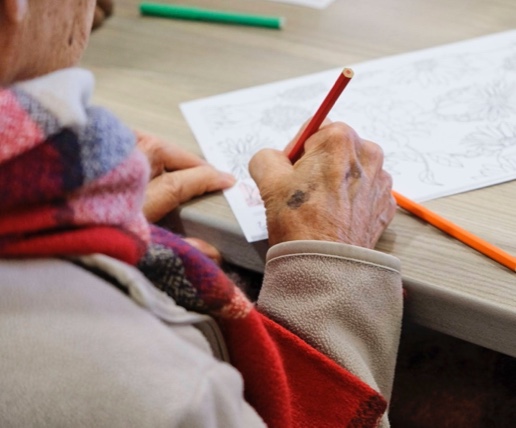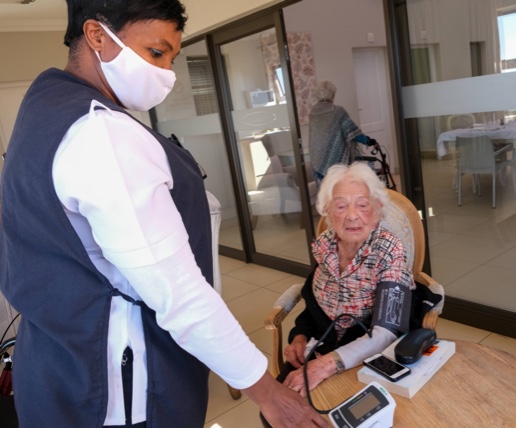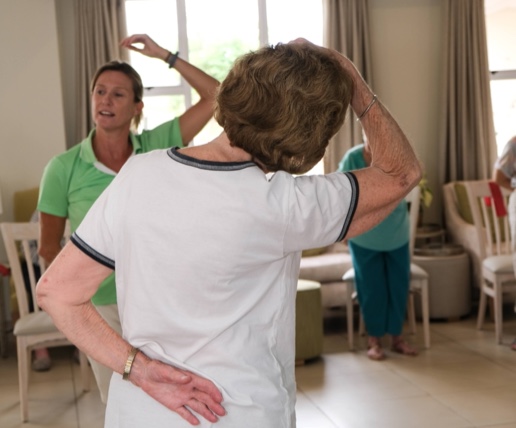
From our childhood days to everyday functions like finding your keys or remembering the details of a book; memories form a big part of our lives. So it goes without saying that keeping your memory intact as you age is a big priority for most seniors.
The good news is that research has shown that memory loss rates in seniors is actually lower than expected. Even better, there are a number of actions seniors can take to reduce the effects of age-related memory loss. Let's take a look at some of them:
The good news is that research has shown that memory loss rates in seniors is actually lower than expected. Even better, there are a number of actions seniors can take to reduce the effects of age-related memory loss. Let's take a look at some of them:



1. Build a Memory Palace
A memory palace (also known as the method of loci) is a mnemonic trick used to remember a large amount of information that you don’t want to forget. It involves imagining a place that’s very familiar to you, then creating visual associations with landmarks on a journey through that place. It’s actually very simple once you get the hang of it. Learn more about building your own memory palace here
A memory palace (also known as the method of loci) is a mnemonic trick used to remember a large amount of information that you don’t want to forget. It involves imagining a place that’s very familiar to you, then creating visual associations with landmarks on a journey through that place. It’s actually very simple once you get the hang of it. Learn more about building your own memory palace here
2. Get a health check up
There are a number of physical conditions (not including dementia or Alzheimer’s disease) that can result in forgetfulness. These include depression, thyroid problems, heart disease, stroke, Vitamin B12 deficiency and more. Some medications contribute to forgetfulness too, such as muscle relaxants, antidepressants, allergy medication, and pain medication amongst others. As a result, having your health checked and treating any underlying conditions may reduce the symptoms of memory loss.
There are a number of physical conditions (not including dementia or Alzheimer’s disease) that can result in forgetfulness. These include depression, thyroid problems, heart disease, stroke, Vitamin B12 deficiency and more. Some medications contribute to forgetfulness too, such as muscle relaxants, antidepressants, allergy medication, and pain medication amongst others. As a result, having your health checked and treating any underlying conditions may reduce the symptoms of memory loss.
3. Stay mentally stimulated
You’re never too old to develop a new skill or take up a new activity. The best way to keep your brain agile is to constantly challenge it. This helps strengthen neural connections that keep your mind sharp and focused. Step out of your comfort zone and learn to play a new instrument, travel to a place you’ve never been before, make a new friend, learn to cook or start dancing lessons. There are so many options to explore.
You’re never too old to develop a new skill or take up a new activity. The best way to keep your brain agile is to constantly challenge it. This helps strengthen neural connections that keep your mind sharp and focused. Step out of your comfort zone and learn to play a new instrument, travel to a place you’ve never been before, make a new friend, learn to cook or start dancing lessons. There are so many options to explore.
4. Give your brain a break
Quieting your mind and taking a mental break are an excellent way to give your brain a chance to rest and recover from the constant distractions of daily life. A good way to promote calmness is to take part in regular meditation. This helps regulate the nervous system, improve breathing and reduce stress. Click here for some beginner’s tips on how to meditate
Quieting your mind and taking a mental break are an excellent way to give your brain a chance to rest and recover from the constant distractions of daily life. A good way to promote calmness is to take part in regular meditation. This helps regulate the nervous system, improve breathing and reduce stress. Click here for some beginner’s tips on how to meditate
5. Exercise regularly
Exercise has many benefits to your health – and your brain is no exception. Getting your heart rate up increases oxygen to your brain, which boosts cognitive function and improves your memory as a result. Regular exercise will also lower your risk of getting other diseases that may cause memory loss.
Exercise has many benefits to your health – and your brain is no exception. Getting your heart rate up increases oxygen to your brain, which boosts cognitive function and improves your memory as a result. Regular exercise will also lower your risk of getting other diseases that may cause memory loss.
6. Rethink your diet
Just like exercise, diet plays a big role in your mental and physical wellbeing. While definitions of a healthy diet differ, there are a number of generally good rules to follow. These include eating healthy fats (such as olive oil, nuts and avocados), a variety of fruits (cherries, blackberries and blueberries are particularly beneficial) and vegetables (especially dark leafy greens), and lean sources of protein (such as fish and turkey).
Just like exercise, diet plays a big role in your mental and physical wellbeing. While definitions of a healthy diet differ, there are a number of generally good rules to follow. These include eating healthy fats (such as olive oil, nuts and avocados), a variety of fruits (cherries, blackberries and blueberries are particularly beneficial) and vegetables (especially dark leafy greens), and lean sources of protein (such as fish and turkey).
7. Stay social
Not many people are aware just how much feelings of loneliness and isolation can contribute to memory loss in seniors. Maintaining strong bonds with family and friends, engaging in social activities, and taking part in fun events, are all highly effective ways to stave off depression and the memory-reducing effects it can cause.
Not many people are aware just how much feelings of loneliness and isolation can contribute to memory loss in seniors. Maintaining strong bonds with family and friends, engaging in social activities, and taking part in fun events, are all highly effective ways to stave off depression and the memory-reducing effects it can cause.
8. Get more quality sleep
Sleep is essential for healthy brain functioning. It’s also the time when the mind consolidates memories. While seniors sometimes struggle to fall or stay asleep in the evenings, there are a few things you can do to improve the chances of a good night sleep. Make your bedroom a sanctuary for sleep. Don’t use any electronics in bed. Avoid drinking alcohol in the evenings, and cut down on caffeine consumption. Try to keep to the same bedtime and waking times every day. Regular exercise, eating well and reducing stress all contribute to better quality sleep too.
Sleep is essential for healthy brain functioning. It’s also the time when the mind consolidates memories. While seniors sometimes struggle to fall or stay asleep in the evenings, there are a few things you can do to improve the chances of a good night sleep. Make your bedroom a sanctuary for sleep. Don’t use any electronics in bed. Avoid drinking alcohol in the evenings, and cut down on caffeine consumption. Try to keep to the same bedtime and waking times every day. Regular exercise, eating well and reducing stress all contribute to better quality sleep too.
From group exercise classes, dancing lessons and swimming pools to landscaped gardens, social activities and luxurious accommodation, Totalcare offers eight sophisticated retirement villages where residents are provided with every amenity, comfort and service they need to maintain a healthy body and mind.
For more information, click here.
For more information, click here.
